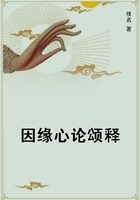consequently, as it is always the income of the present that forms the capital of the future, free trade assures the greatest amount of well-being for all time to come.
In Germany this one-sidedness of the English school was early recognised. Many writers, as, for instance, Friedrich List, actively combated it. List placed his "theory of productive forces" alongside of his "theory of value": exchange value was to be the determining force in private economic relations, whereas, in the economy of the state, "productive force" was to take its place -- an antithesis whose inadequacy is most clearly shown from the consideration that "productive forces" are themselves estimated according to exchange value. Most writers took a different course. They tried, gradually, and at first altogether academically, to broaden the private economic views of the English School, in such a way as to make them as far as possible applicable to all economic relations. As regards value in particular, exchange value was traced back to the general conception of use value, and then conceived of as national or social use value. Thus little by little the theory altered its formal character. It undoubtedly became more rounded, more plausible, more adaptable, but at the same time more indefinite and inexact. Without following accurately the further development of this theory, I may point out its most important fact: that the scientific discussion did finally give up its academic hesitation, and, in spite of the slightness of its theoretic foundation, laid down with success and decision principles for the practical formation of a state economy. Like the financial system of the European states, their economic politics were gradually reformed by the active assistance of theory, although theory itself had not completely accomplished its task, nor, indeed, was quite aware what that task was. The "theory" was a highly-developed technology, capable of giving right direction, although it did not succeed in finding its justification -- and with that, of course, its limitation -- in absolutely convincing clearness.
The lately published work of E. Sax (Grundlegung der Theoretischen Staatswirthschaft) is the first to complete the transition from technology to the theory of national economy, and has thus at last reached a goal aimed at by the German economists through a long and steady development. In the sphere of administration Sax has succeeded in indicating how public interests may have the widest play, while still maintaining a fixed economic conception which holds fast by the essentially economic. The economic is one and the same in all its forms, everywhere entirely distinct from the non-economic. Very important is the application of Sax's work to the sphere of finance -- all the more important that here he had almost no predecessors -- and that the idea is thought out into details with great clearness. The whole system of imposts rests on value:
this simple proposition makes the science of finance for the first time what it should always have been, a part of political economy. "Imposts of all kinds are examples of collective valuation which find their full explanation in the general nature of the phenomenon of value. The truth which finds expression in this formula is directly decisive for the theory of national economy, as a branch of the total theory of political economy, balancing that of private economy. The simplicity of the solution is a guarantee of its correctness. The apple falls from the tree and the stars describe their courses in obedience to one and the same law, that of gravitation. A Robinson Crusoe and a nation numbering a hundred million souls obey one and the same law in their economical transactions, that of value" (pp. 307-8).
The statement which follows is so general and so condensed that I have had but little chance of going into the rich contents of Sax's book. In the interests of the statement I have, moreover, considered it wiser, even where I disagree with Sax, to refrain from the most part from any attempt to prove my divergences with any great exactitude, as, in this portion of my work, even more than in the former, I have neglected the literary aspect of the subject. Here, as formerly, my task has been to demonstrate, comprehensively and as a whole, what has hitherto been considered only in isolation, if at all. It appeared to me foreign to the plan of my work, and likely only to increase the difficulty of the task which chiefly concerned me, -- that of affording a survey of the whole subject, -- were I to let myself be carried away by criticism and polemic into detail which Ishould not have gone into for its own sake.















